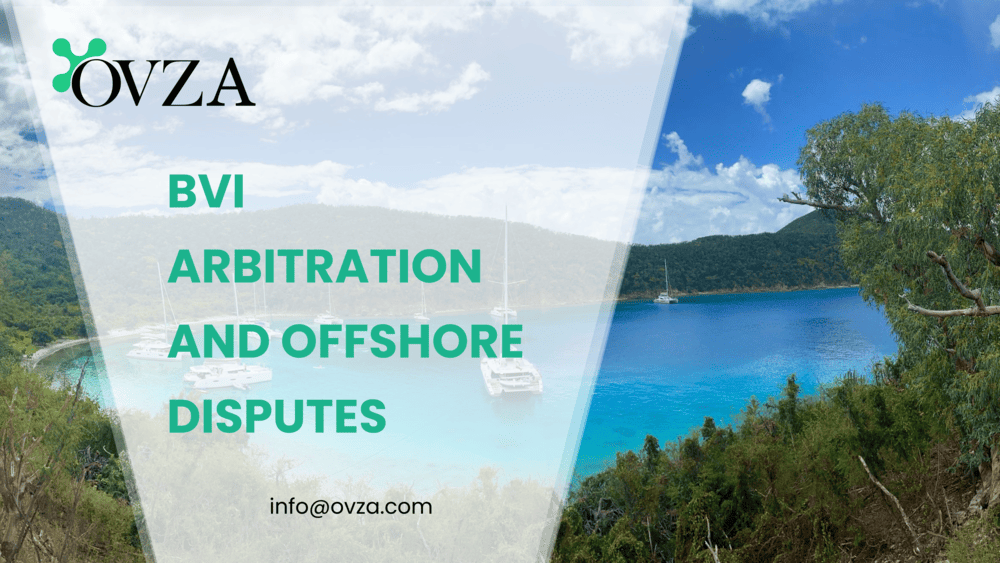Offshore directors must uphold fiduciary duties including loyalty, care, and conflict disclosure under common law and international compliance rules.The fiduciary duties of offshore directors represent a fundamental component of corporate governance within international business companies (IBCs) and other offshore corporate forms. These duties derive from both statutory obligations and equitable principles developed under common law, which remain the dominant legal foundation in many offshore jurisdictions including the British Virgin Islands, the Cayman Islands, and Bermuda. Whether appointed as nominee, independent, or executive directors, individuals acting in this capacity are required to adhere to duties of loyalty, care, good faith, and to act in the best interests of the company. The scope and enforcement of these duties have been shaped by case law and legislation, and increasingly intersect with cross-border compliance frameworks and international standards of governance.
Legal Principles and Jurisdictional Consistency
Offshore jurisdictions typically preserve the core fiduciary standards articulated in English common law. In jurisdictions such as the British Virgin Islands, these are codified under the BVI Business Companies Act, while in the Cayman Islands, the Companies Act (2023 Revision) governs corporate governance structures but allows fiduciary principles to remain primarily judge-made. The fundamental duty of loyalty prohibits directors from using their position for personal gain or placing themselves in situations of conflict without informed consent. Case law such as Regal (Hastings) Ltd v Gulliver [1942] UKHL 1 continues to influence judicial interpretation, including in offshore courts which rely on English authorities as persuasive precedent.
The duty to act in good faith and in the best interests of the company has been interpreted to mean that directors must exercise independent judgment, avoid self-dealing, and take decisions that promote the long-term interests of the corporate entity, rather than those of shareholders, creditors, or the appointing party. In offshore contexts, particularly in situations involving nominee directorships or structures that include family trusts, the application of this duty becomes nuanced. Courts have consistently held that fiduciary duties are owed to the company as a separate legal person, and not to the beneficial owners or settlors who may ultimately control the entity. The principle of separate legal personality—rooted in Salomon v A. Salomon & Co Ltd [1897] AC 22—is central to this analysis and is preserved in offshore company law regimes.
The duty of care, skill, and diligence is generally assessed by a hybrid objective-subjective standard. In the offshore environment, the question of whether a director has acted negligently or failed to take reasonable care depends on the factual matrix, including the director’s experience, the complexity of the company’s operations, and the degree of reliance on professional advisors. Although many offshore companies are used as passive holding vehicles or asset protection entities, courts will not excuse dereliction of fiduciary oversight simply because the company had no commercial operations. Offshore directors are expected to understand the affairs of the company, review key documentation, and take affirmative steps to ensure compliance with statutory and contractual obligations.
The rise of cross-border enforcement actions and regulatory cooperation under frameworks such as the OECD’s Common Reporting Standard and the FATF Recommendations has elevated the importance of fiduciary duties in offshore governance. Directors may be held liable for failing to implement anti-money laundering procedures, for breaches of beneficial ownership disclosure requirements, or for facilitating transactions that violate international sanctions. These developments have expanded the context in which fiduciary breaches are evaluated and have increased the legal exposure of directors who fail to exercise adequate oversight in an offshore structure.
Conflicts of Interest, Delegation, and Regulatory Accountability
A central aspect of fiduciary duties in the offshore context involves the management and disclosure of conflicts of interest. Offshore directors are often appointed to multiple boards within a group structure or serve at the behest of service providers or settlors. While such appointments are not inherently improper, the law imposes a clear duty to disclose conflicts and abstain from decisions where impartiality is compromised. In many jurisdictions, statutory provisions codify this obligation; for example, under section 120 of the BVI Business Companies Act, directors must disclose any interest in a transaction to the board, and the company’s memorandum and articles may restrict voting rights in conflicted scenarios. This requirement is not mitigated by the fact that the beneficial owner may be fully aware of the director’s position or interests.
The duty not to improperly delegate responsibilities is particularly relevant in jurisdictions where directors frequently rely on registered agents, trust companies, and legal counsel to manage day-to-day administration. While offshore law recognizes that directors may seek professional advice and delegate certain tasks, they remain ultimately responsible for the supervision and oversight of corporate affairs. Courts in the Cayman Islands, Bermuda, and the Isle of Man have made clear that reliance on professional advisors does not absolve directors of liability where they failed to assess whether advice was sound or applicable. In practice, directors must maintain periodic engagement with the company, review financial statements, and ensure that statutory filings are made accurately and on time.
Offshore jurisdictions continue to develop statutory enforcement mechanisms that enhance director accountability. In the Cayman Islands, section 97 of the Companies Act grants the court power to order that any person who has misapplied company property or committed a breach of fiduciary duty repay or restore that property or pay compensation. Similarly, in jurisdictions such as Mauritius and Labuan, regulatory commissions have authority to bring proceedings for misconduct under financial services laws that extend fiduciary duties to directors of licensed entities. The evolution of these enforcement tools reflects a growing expectation that offshore directors must not only avoid wrongdoing but also proactively maintain governance standards that align with international norms.
Where companies are used for regulated or quasi-regulated activity—such as holding financial instruments, issuing digital assets, or engaging in lending—fiduciary duties take on an additional layer of compliance. The director’s obligation to ensure that the company does not engage in unauthorized activity, or that it adheres to applicable licensing conditions, becomes part of the fiduciary matrix. Failure to do so may result not only in private law claims from shareholders or creditors, but also in regulatory sanctions, public enforcement, and disqualification from future directorships. These risks are amplified by the automatic information exchange regimes implemented under FATCA, CRS, and related initiatives that allow tax and regulatory authorities to detect irregularities across borders.
Recent jurisprudence in the Eastern Caribbean Supreme Court and Cayman Grand Court indicates an increased willingness to hold offshore directors personally liable where they fail to act diligently, knowingly assist in breaches of duty, or participate in transactions that harm the company’s interests. Such liability may arise even where the company is dissolved or where the ultimate beneficial owner directs the company’s affairs. In this context, directors must understand that fiduciary duties are owed to the legal entity itself and cannot be displaced by informal instructions or beneficial owner preferences. The legal personality of the company is distinct, and directors act in law as stewards of that corporate person.
Litigation Exposure and Governance Best Practices
The litigation risk faced by offshore directors for breaches of fiduciary duty has grown markedly in tandem with global regulatory integration and heightened transparency mandates. Although traditional offshore jurisdictions have long shielded directors from personal liability where actions were taken in good faith and for proper corporate purpose, courts increasingly look to the substance of directorial engagement. In complex structures involving asset protection, family offices, or high-risk investments, courts may pierce formalities to determine whether directors exercised independent oversight or merely served as passive proxies. Cases arising from insolvency, shareholder derivative actions, and regulatory enforcement proceedings routinely test the limits of fiduciary compliance.
Directors are advised to document board decisions thoroughly, maintain copies of all filings and corporate resolutions, and seek legal advice where potential conflicts or ambiguities exist. Jurisdictions such as Jersey, Guernsey, and the Cayman Islands have developed case law recognizing that formal adherence to process, even where outcomes are commercially adverse, often protects directors from liability. The converse is also true: failure to observe procedural requirements, neglect of statutory filings, or failure to prevent improper distributions can trigger personal exposure.
Practitioners structuring offshore companies should incorporate governance frameworks that reinforce fiduciary integrity. These include scheduled board meetings, audit committee oversight, segregation of financial authority, and director indemnification agreements—provided these do not contravene public policy or statutory limitations. Furthermore, legal advice should clarify the director’s duties where the company is used as part of a trust structure or holding vehicle, especially in jurisdictions where directors may have overlapping roles in related entities.
As offshore financial structures evolve in complexity and interdependence, fiduciary duties of directors will continue to anchor the legal sustainability of these entities. Courts are increasingly prepared to assess whether offshore directors operate with informed discretion, legitimate purpose, and compliance with both local and international legal standards. The consequences of failure are not limited to private law damages, but may include regulatory sanctions, cross-border injunctions, and reputational harm that impacts both individuals and the service providers who appoint them.
Conclusion
Fiduciary duties of offshore directors are a cornerstone of corporate governance in cross-border structures. These duties—loyalty, care, good faith, and proper purpose—are not diminished by the offshore nature of the entity or its passive operational profile. Courts and regulators expect directors to exercise real oversight, avoid conflicts, and act in the legal interest of the company as a distinct juridical person. The rise of international enforcement cooperation, public beneficial ownership registers, and transparency mandates has reinforced the legal and practical relevance of these obligations. Offshore directors must therefore approach their roles not as ceremonial appointments but as positions carrying binding legal responsibilities.
Disclaimer: The information provided on this website is intended for general reference and educational purposes only. While OVZA makes every effort to ensure accuracy and timeliness, the content should not be considered legal, financial, or tax advice.











